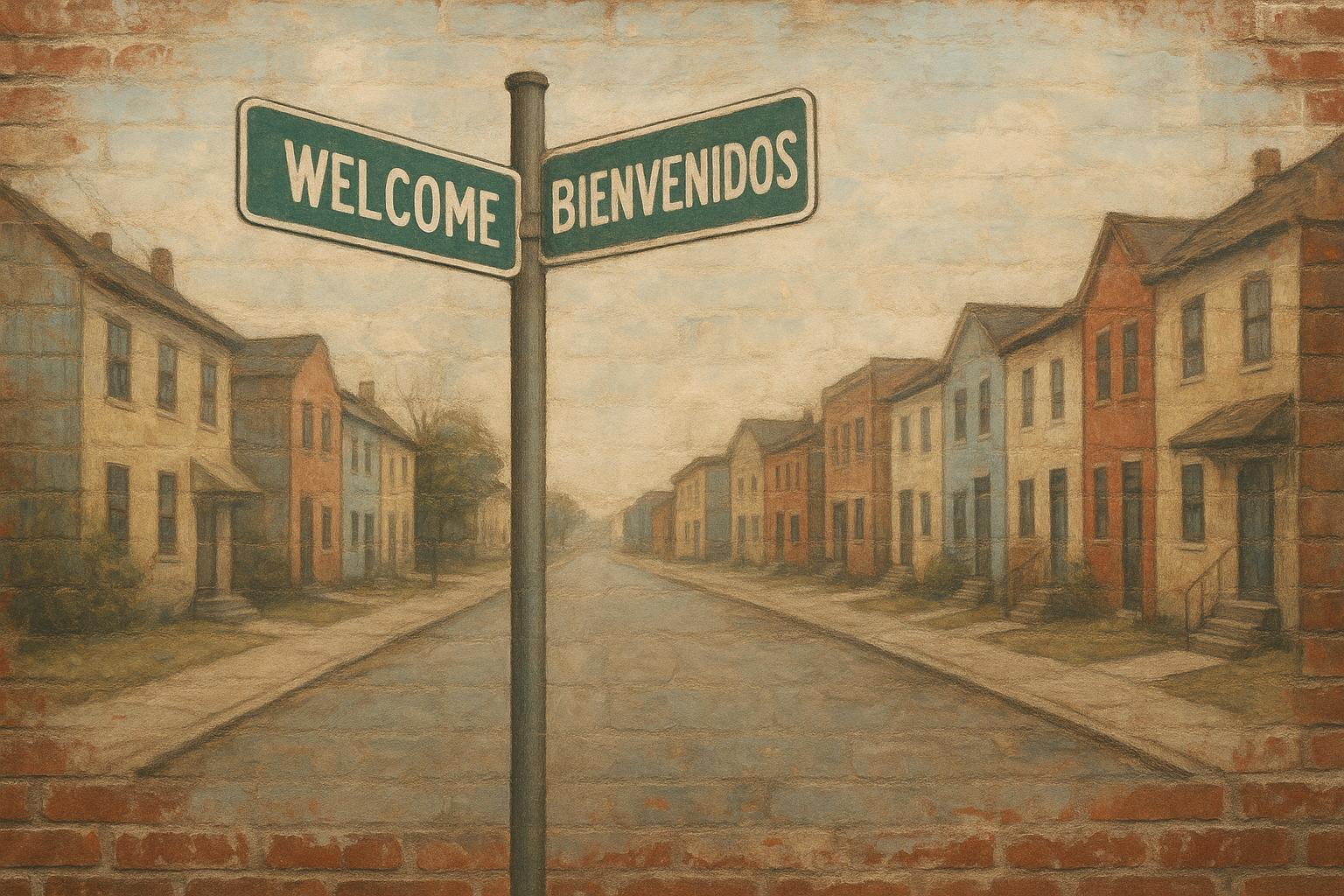Some mornings on the way to work, the author would buy a bacon butty at a London café, sharing a camaraderie with the Cockney man behind the counter. Despite their different backgrounds, his Cockney friend from a council house in the East End with a working-class family, and the author from a middle-class Conservative family with wartime naval connections, they shared common cultural roots. Both had been brought up with Christian values, attended church at Christmas and Easter, and had their education infused with Christian prayers. Yet today, they both lament a profound transformation of the capital and the country at large, which has left them feeling alienated from the place they once called home.
A recent survey by Ipsos underscores this sense of loss among many Britons. It revealed a striking majority of people longing for the UK to be “the way it used to be” and expressing concern that cultural changes are happening too fast. This unease comes amid a surge in the public’s prioritisation of immigration as the most critical national issue, surpassing even healthcare, the economy, crime, and inflation for the first time since 2016. The Ipsos poll found that 34% of Britons now see immigration as the top issue. This shift is linked to rising tensions following riots targeting Muslims and migrants, increasing anxieties about race relations and crime. The net migration to Britain hit a record high of 764,000 in 2022 and remained elevated at 685,000 in 2023, amplifying public concerns.
The author brings this statistic into a stark, personal context. Over two days, more than 1,200 predominantly young men crossed the Channel illegally on 18 boats, and since the Labour government came to power in July 2024, around 50,000 have made the perilous journey. Yet, the Home Office states that an almost equal number of failed asylum seekers, foreign criminals, and immigration offenders have been removed during the same period, with many hailing from places like Albania and the Far East. Still, some estimates suggest that around 1.2 million illegal migrants may be residing in Britain clandestinely, though these figures are disputed.
This massive influx unsettles many Britons, fueling fears about social cohesion and national identity. Alec Penstone, a 100-year-old Royal Navy veteran, expressed disillusionment on Good Morning Britain, questioning whether the sacrifices made by his comrades during World War II were worthwhile given Britain’s current state. His lamentation reflects a broader unease among those who feel the country is drifting away from the values and freedoms their predecessors fought to protect.
The author recounts her extensive experience observing the migration crisis firsthand across Europe, from France to Greece and beyond, noting that most migrants are Muslim men, with very few Christians among them. A poignant example includes an Iranian Christian migrant in Calais who fears for his life if his faith becomes known in migrant camps. These observations underline concerns about the challenges of integrating millions of newcomers who may not share British cultural or religious traditions.
This cultural tension was vividly illustrated at a recent football match in Birmingham, where Israeli fans at Aston Villa’s Europa League game against Maccabi Tel Aviv were confined to a fenced-off area dubbed the 'Jew cage' by those inside. Rival demonstrators, many of them masked anti-Zionists, were allowed to move freely, chanting slogans including "Allahu Akbar." The pro-Israel group responsible for the demonstration confirmed that the police had agreed to this arrangement to prevent violence, though it drew condemnation from politicians and raised wider questions about antisemitism and the social climate surrounding political conflicts. The spectacle evoked painful reminders of historical persecution for some attendees, worsening feelings of alienation and fear.
Behind these scenes, social unrest has already flared sporadically, such as riots following the Southport atrocity and protests against asylum seekers after a sexual assault incident in the town of Epping. Public figures like Elon Musk have warned that continued mass migration could provoke violence, urging the ‘reasonable centre’ to recognise the gravity of the situation. While hopeful for peaceful assimilation, the author doubts the prospects given the rapid demographic and cultural changes accompanied by a declining Christian presence in public life.
In addressing these concerns publicly, the author reports facing hostility and accusations of racism, particularly after exposing issues like the grooming gang scandals involving Muslim perpetrators. She recalls personal harassment over many years and notes a government tendency to control media narratives, an approach that chafes against the freedoms her wartime forebears fought for.
The sense of injustice extends to welfare and housing policies. The author highlights resentment when migrants arriving illegally are given priority access to free social housing, health care, and other benefits, while many British families face decades-long waits for housing. The Home Office reportedly requested pre-publication approval of her investigations, raising questions about press independence.
Despite imperfections in the past, the author argues that the UK has traditionally been a nation built on liberal values and cultural integration. However, without a concerted effort to uphold these principles and address the realities of mass migration, she fears the country is slipping away from those shared values. The generational sacrifice embodied by veterans like Alec Penstone must inspire a defence of freedoms, social cohesion, and the right to openly discuss the consequences of these profound societal changes.
📌 Reference Map:
- [1] (Daily Mail) - Paragraphs 1-16, 18-23
- [2] (Reuters) - Paragraphs 2-3
- [3] (Ipsos) - Paragraph 2
- [4] (Yahoo News) - Paragraphs 9-10
- [5] (New English Review) - Paragraph 10
- [6] (Yahoo News) - Paragraph 11
- [7] (Ynet News) - Paragraph 10
Source: Noah Wire Services
